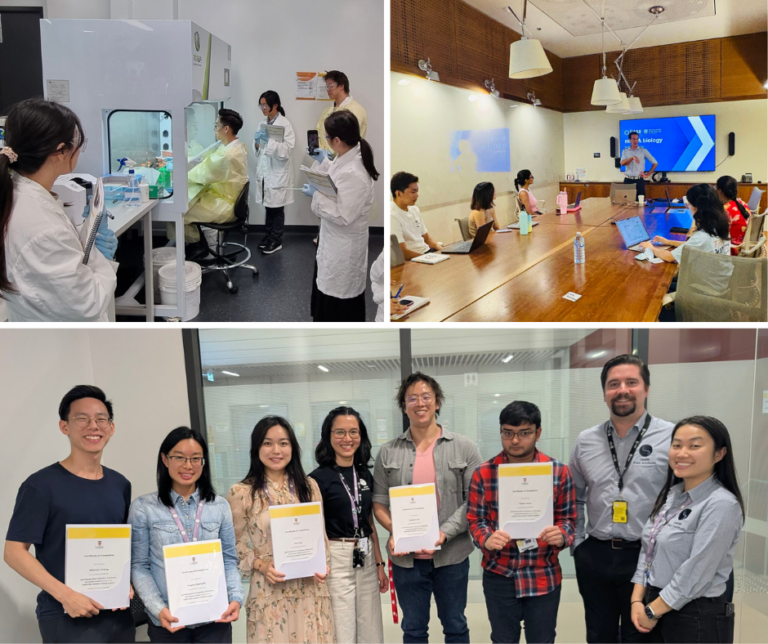Building Australia’s RNA Biomanufacturing Workforce: TIA Facilities Deliver Hands-On Training
Several of Therapeutic Innovation Australia’s facilities are making major strides in workforce development through hands-on training programs that foster the next generation of RNA biomanufacturing experts.
Recently, the UNSW RNA Institute launched its inaugural training program, offering four courses in RNA therapeutics manufacturing and quality control – Synthetic RNA/Oligos, mRNA, and Lipid Nanoparticle formulations, as well as plasmid and linearised DNA that is delivered in partnership with the UNSW Recombinant Products Facility. Designed for researchers and professionals working in (or looking to enter) the RNA space, the courses provide a deep dive into the production and analysis of RNA-based therapeutics. A standout feature of the program is its practical, lab-based format, allowing participants to gain in-depth experience with key methodologies that underpin the transition from small-scale academic research to clinical manufacturing.
With a focussed class size of five participants per session, the courses deliver a high-quality, immersive learning experience. Attendees benefit from expert-led theory modules as well as hands-on exposure to RNA therapeutics production and quality control using a range of techniques applicable to bench scale research and scalable manufacturing. This foundational training also paves the way for future engagement with large-scale GMP courses at facilities such as the UTS Biologics Innovation Facility.
Meanwhile, at the University of Queensland, the BASE facility recently hosted its first mRNA MasterClass for UQ Masters students. The workshop took participants through the full journey of mRNA vaccine development—from the fundamentals of mRNA biology and vaccine design through to production, quality control, and formulation of mRNA-lipid nanoparticles (LNPs). Students were also introduced to mRNArchitect, a software toolkit developed in-house to optimise mRNA vaccine and therapeutic sequences. Built on the DNAChisel framework, mRNArchitect enhances stability and translation efficiency while minimising reactogenicity, giving students a powerful tool for sequence design.
Students had the unique opportunity to produce their own mRNA-LNPs in the lab and engage directly with BASE’s expert team to discuss both technical concepts and career development in this rapidly evolving field.
These programs reflect the growing demand for skilled RNA biomanufacturing professionals in Australia and underscore the important role of TIA-supported facilities in building capability across the sector.
“The course was very well designed by the instructors who delivered with clarity and offered great support. The content was highly valuable and easy to understand. The workbook was especially helpful. I really enjoyed the team work aspect of the course and the lab-bench component. Highly recommended!”
Synthetic RNA/Oligos course participant



